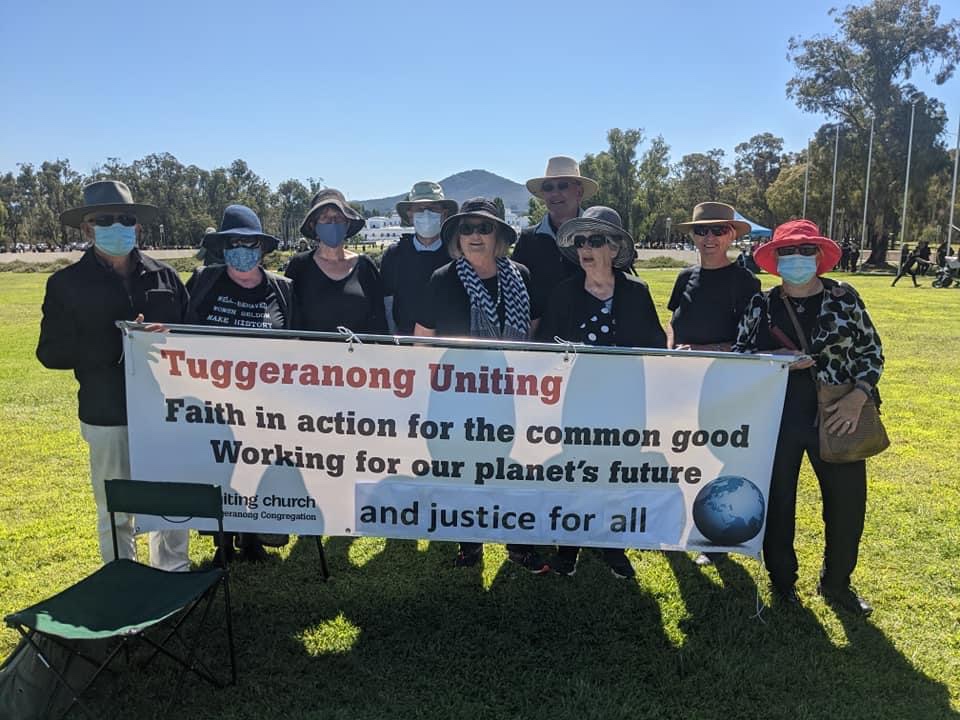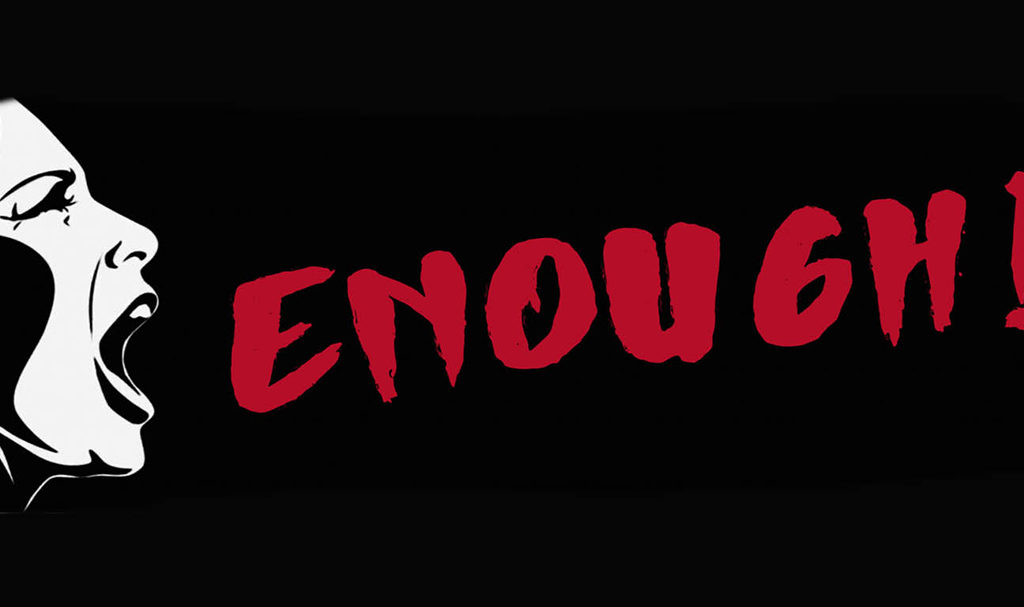The words echoed down Federation Mall in Canberra, as thousands of people–many, many women, as well as many men–gathered outside the Australian Parliament House to express their anger and hurt about recent very public revelations about the toxic work environment in the parliament and the alleged criminal behaviour of a prominent federal leader.
I was present at this event in Canberra–one of 42 places across Australia where marches were held–along with the ministers of the Gungahlin, Kippax, and Tuggeranong congregations, as well as the Congregational Chairperson, the Church Council Chairperson, and other members of the Tuggeranong Uniting Church.

As one of the men at the March, I was present to express my solidarity with women in this current circumstance.
Women are rightly angry. Far too many women have been hurt–shamed and sacked, experiencing discrimination, abuse and even rape. Their anger is rightly warranted.

So many women bear deep scars from abuse they have experienced at the hands of men. They are disturbed and damaged. Some women have been driven to suicide by the pressures they have felt from toxic masculinity. This is deeply tragic, and completely unacceptable.
Things cannot continue as they have been–not in the Federal Parliament House, not in the various State and Territory parliaments, not in the many workplaces around the country where sexual abuse is rife. The call for Justice, clearly articulated by speaker after speaker at the Canberra rally, is one that must be heard, and responded to, by people in leadership in the federal Parliament, and in businesses and other workplaces across the country.
The call for Justice is grounded in our scriptures, and derived from the fundamental view of the world that is expressed there.
Right at the start of scripture, the very first word about God is that God created (Gen 1:1). The very first word about humanity is that we were created “in the image of God—male and female” (Gen 1:27).
Those first words then shape and drive an understanding of humanity that values the equality of all people, that honours women as equally gifted, equally capable, equally responsible, and equally important, as men.
Hebrew Scripture includes narratives of strong, capable, women: Hagar and Sarah the matriarchs, Miriam the prophet, Zipporah the saviour of Moses, Deborah the judge, Huldah the prophet, the divining woman of Endor, Abigail the advocate of her husband Nabal, Athaliah the Queen of Judah, the unnamed hospitable woman of Shunnem, Ruth the Moabite, Esther the queen, and so many more …..
Jesus lives out this vision in what he says and does: valuing woman as much as men, calling women as well as men, teaching women as well as men. Think of Martha and Mary, Joanna and Susanna, Mary from Magdala–and, of course, his own mother, the fiery feminist icon who sang the Magnificat and stayed strong through to the cross. Strong women, contributing equally to the vitality and growth of the early movement.
The early church continued this way of operating, with leadership being given by Priscilla and Phoebe, Junia the apostle, Mary of Jerusalem, Euodia and Syntyche of Philippi, Tryphosa, Julia and Olympus of Rome, and many more unnamed. The prominence of women leadership in the ongoing church (much to the consternation of some prominent male leaders!) attests to the valuing of female leadership in the movement that became Christianity.
And in subsequent centuries, we can think of Hilda of Whitby, Clare of Assisi, Heloise the philosopher, Julian of Norwich, Hildegard of Bingen, Brigid of Ireland (said to be a bishop), Catherine of Siena, and more … right through to Mary McKillop and Teresa of Calcutta in recent times.
Women continue to serve and lead in so many ways–witness the recent sight of a nun on her knees, pleading with Myanmar military to shoot her, not children. All of this is integral to our faith heritage.

Hebrew scripture also attests to the long and enduring witness of prophetic voices, reminding the people of Israel of their covenant with God and the responsibilities this brought for living justly. Jesus continues this prophetic vocation as he calls his followers to “seek the kingdom of God and God’s righteous ways”. We stand in this stream, called to live out our faith in daily life, commissioned to stand for Justice in our society.
Standing against injustices committed by men against women should simply be second nature for people who are followers of Jesus, disciples within the church, people of Christian faith. Behaviour that is bullying or discriminatory, actions of sexual misconduct and rape, are all completely unacceptable.

Brittany Higgins, speaking at the Canberra March4Justice, said, “The system is broken, the glass ceiling is still in place, injustices continue to occur.” Australian of the Year, Grace Tame, told the March in Hobart that “Silence allows evil to thrive.” We cannot allow that silence to continue. We must work to fix the system.
Today in Australia, we look for leadership that is willing to address the many injustices, to give voice to those who have been silenced for so long, and to work hard to ensure safe places of work, healthy structures and processes, viable pathways to accept and support those women who have been victims.
As people of faith, we rightly belong in the movement that is advocating and agitating, marching and calling for change, to remove ingrained injustices and show that we value women equally in every way. As we do this, we are bearing witness to the Gospel and live out its values in our lives.
Yes: Enough is Enough!
Rev Dr John Squires is Presbytery Minister (Wellbeing) for Canberra Region Presbytery. This reflection originally appeared on his blog, An Informed Faith.













